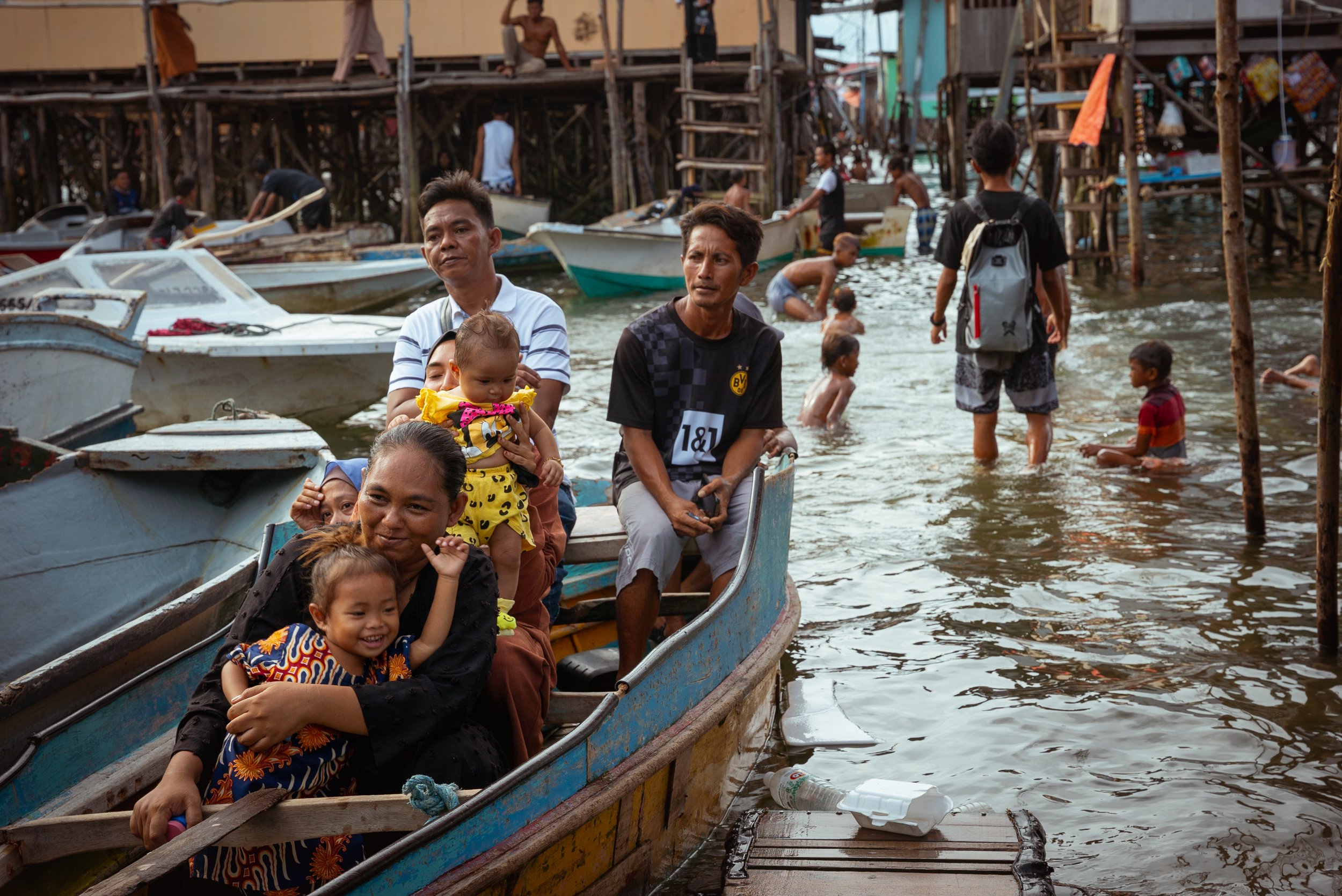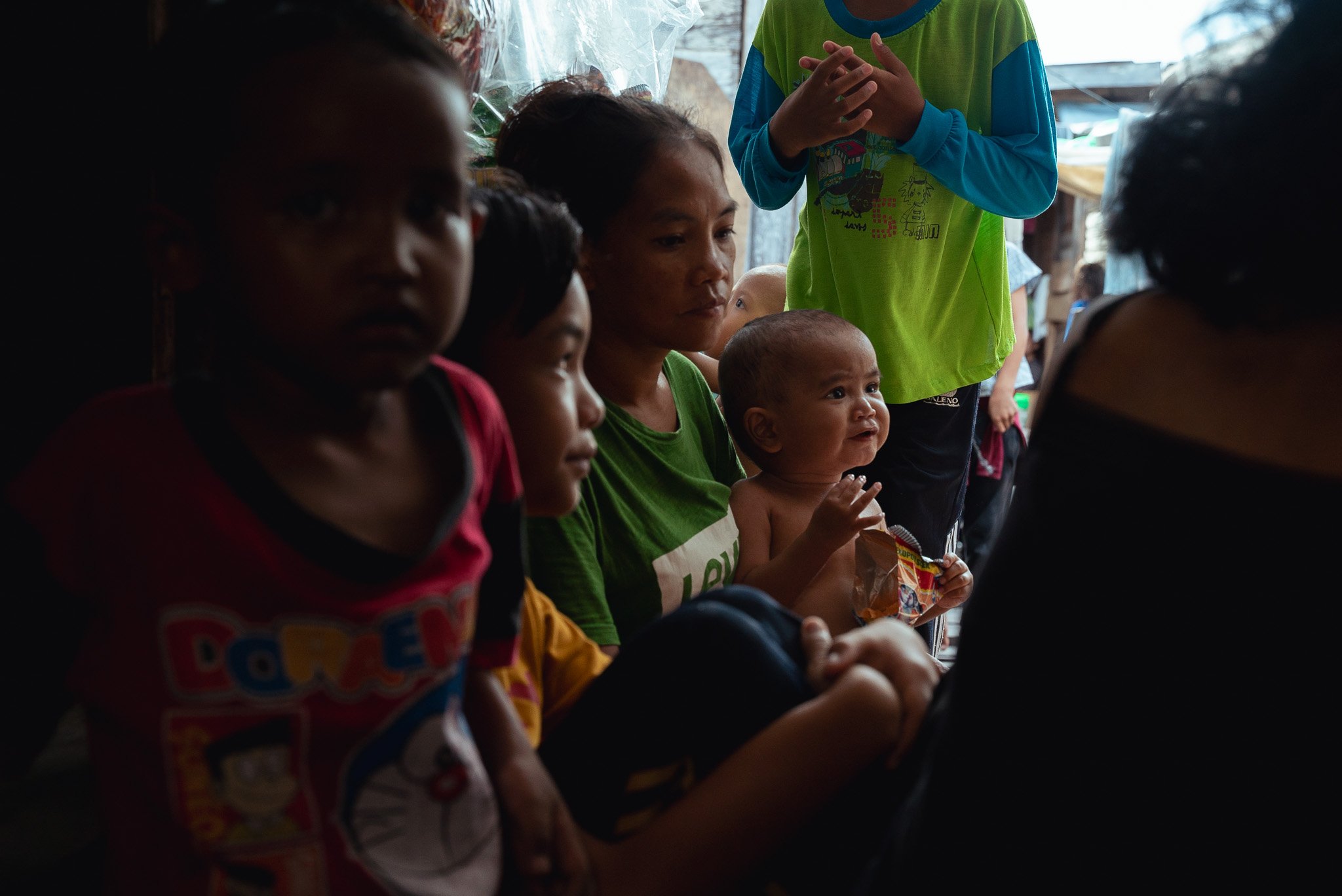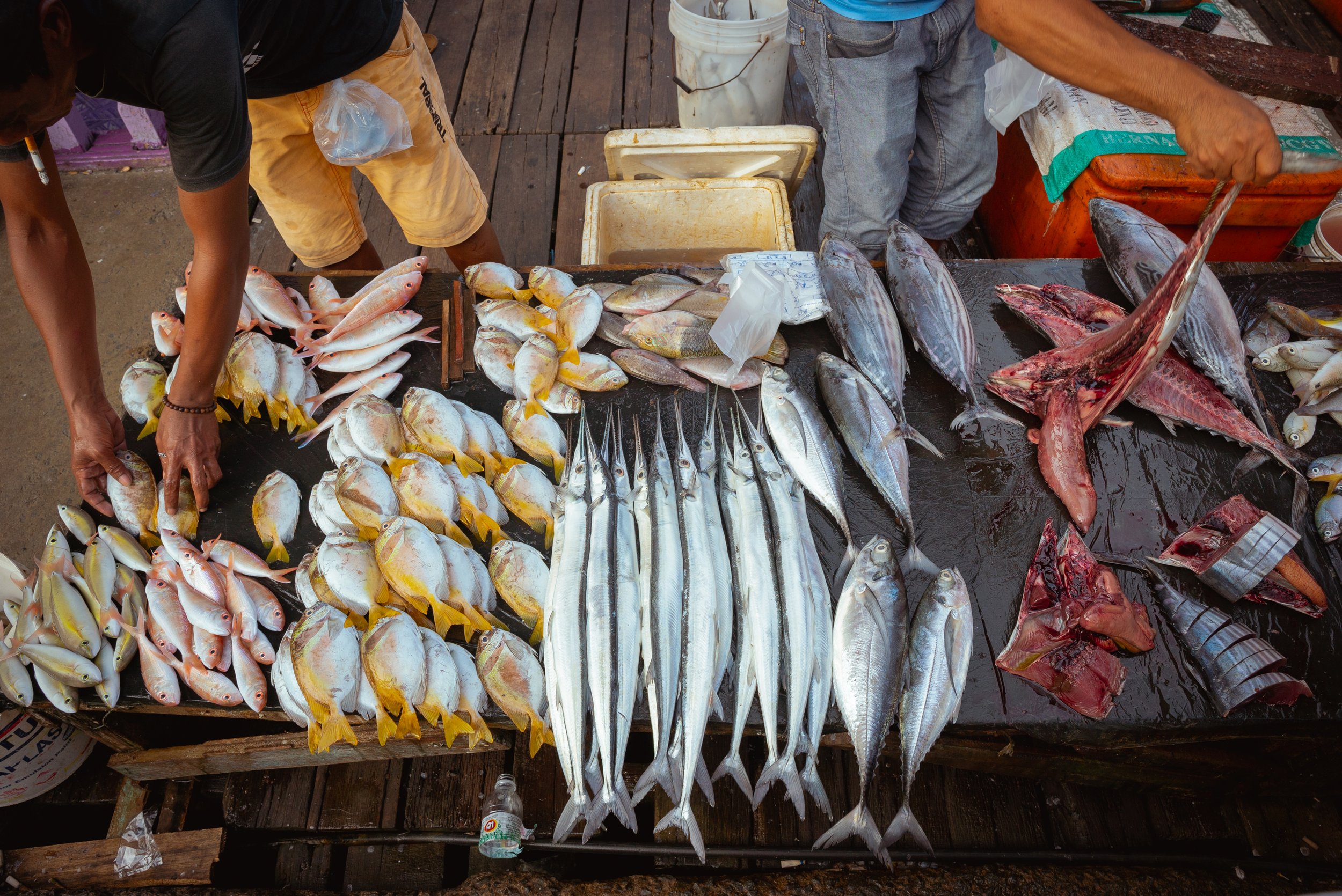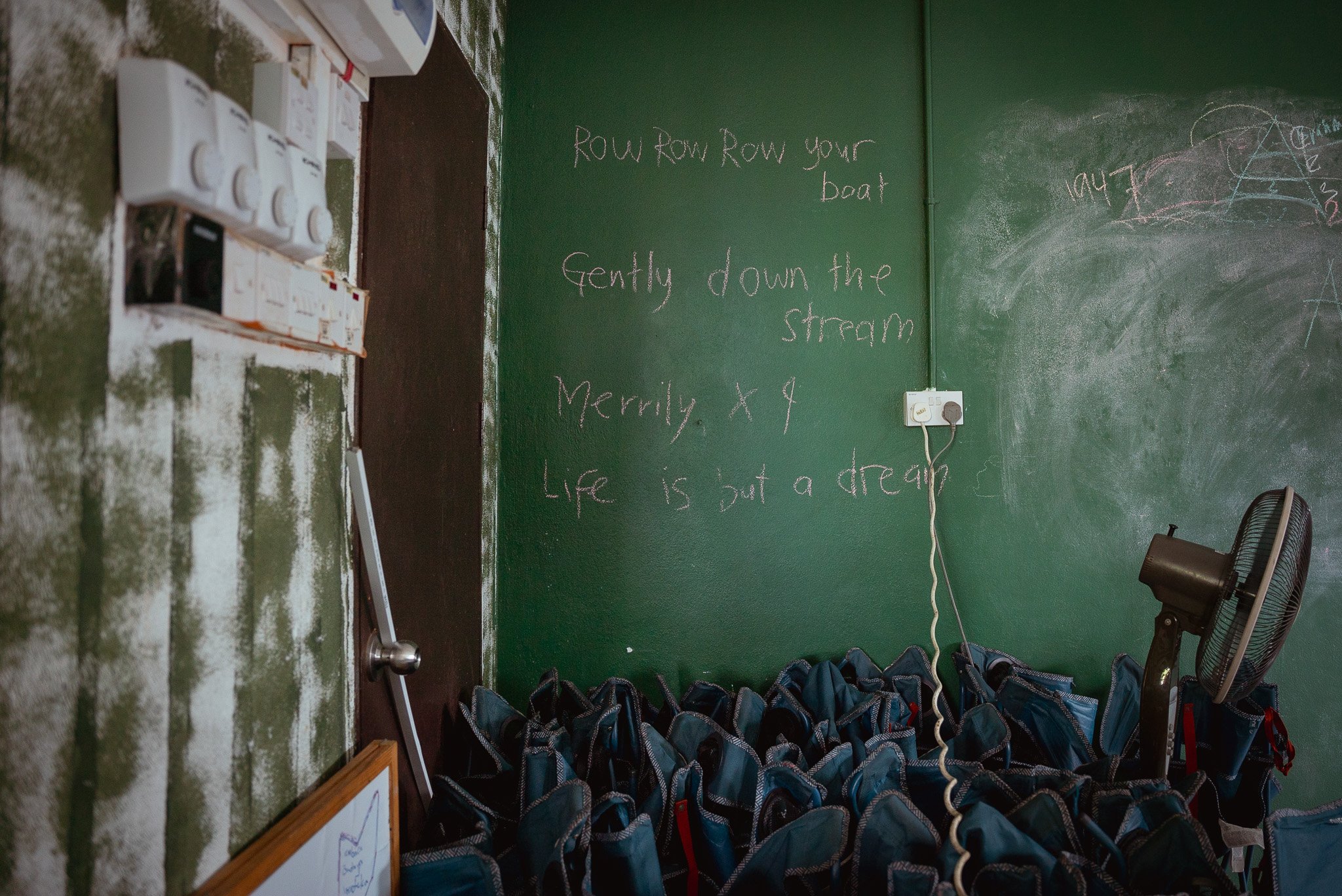
























Stateless in Semporna
In the state of Sabah in Malaysian Borneo, around 1 in 3 people lack citizenship. The village of Bangau-Bangau, Semporna, is home to thousands of stateless people living in destitution in stilt houses above sea water; a physical metaphor for their own suspended existence. Without documentation, children are not permitted to attend public schools. Adults are not legally allowed to work. Healthcare comes at steep price which most can’t afford. Almost all families living on the so-called “floating village” are trapped in an eternal cycle of poverty. Dish soap, laundry detergent, and cooking oil are poured into little plastic tubes tied off with a knot and sold for 50 sen or 10 cents USD. There are few who could afford the luxury of buying an entire bottle.
The proposed changes to Malaysian citizenship laws in 2024, which were initially met with widespread criticism and backlash, included five amendments deemed regressive by civil society groups. These amendments aimed to alter the country’s citizenship laws in ways that could potentially lead to greater statelessness and hinder the automatic entitlement to citizenship for certain groups. The law has been dumped after lawmakers from the ruling party also criticised it, particularly its potential to render more children stateless, but citizenship continues to be a hotly debated topic in the country. Shot for Getty Images Reportage